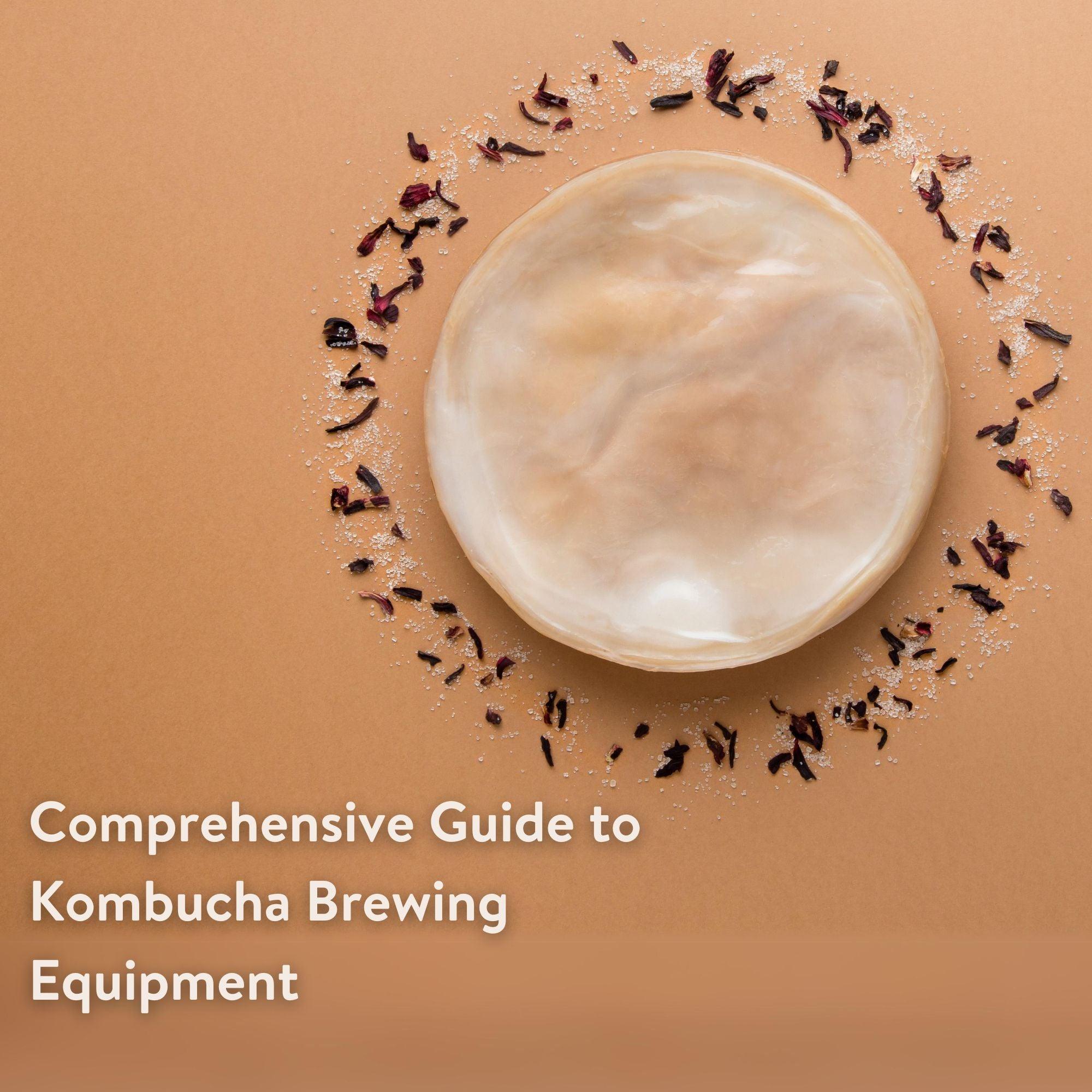You must have come across the word Kombucha within the health and wellness community and perhaps rolled your eyes and dismissed it as another passing fad. Like we all do. But Kombucha has stood the test of time.
The benefits of this fermented Tea have made it a favourite amongst conscious consumers not just because of its health promoting traits but also because of its sustainability, plant-based roots and convenience to brew at home, that has made it a real preference.
Besides, it’s a super exciting alternative to the myriad processed varieties of carbonated and sweetened beverages available in the market. But what makes this simple fermented tea so life changing?
Let’s delve in deeper to decode the fermented world of Kombucha and understand what the hype is all about.
What is Kombucha?
Kombucha has been called ‘The Immortal Tea’ by the people of China - where it also happened to originate - because of its various health benefits to our body.
Simply put, it’s fermented tea - a rich source of natural probiotics, beneficial digestive enzymes, antioxidants, vitamins and micronutrients.
Perhaps, the most exciting aspect about Kombucha is that it tastes amazing – naturally tart and fizzy.
It tastes everything like your favourite carbonated beverages and even better. It’s that healthy thing which also happens to taste divine.
How is Kombucha brewed?
Kombucha is made by fermenting sugar with black or green tea or sometimes, both.
The most essential ingredient required to brew Kombucha is the SCOBY (Symbiotic culture of yeast and bacteria).
The SCOBY is a community of gut-friendly bacteria and yeast that work like a cross functional team to breakdown the sugars present in the Tea, to release acid and carbon dioxide.
The acids bring in most of the benefits associated with Kombucha and is responsible for its signature tart flavour. The carbon dioxide imparts the fizziness.
Brewing Kombucha is quite easy if you get the basic ratio of ingredients right. The key, however, is to get yourself a good quality SCOBY.
If you are looking to brew Kombucha at home, make sure to buy your SCOBY from reputed and experienced brewers to ensure a truly fizzy and delightful Kombucha.
Check out the readily available mother SCOBY by Cultures to love, to kickstart your homebrewing journey. You can also reach out to your brewer friends to lend you a SCOBY and have unlimited access to Kombucha.
How does Kombucha look like?
Kombucha appears pretty much like Tea with loose strands of yeast and other active cultures floating in the bottle, which continue to grow till they are picked up from retail stores.
It tastes tart, sweet and is super fizzy. It can be called a non-alcoholic champagne.
What are the health benefits of Kombucha?
Most of the health benefits associated to Kombucha arises from its ability to heal an imbalanced gut. The cause of this imbalance could be anything between lack of a balanced diet and intake of antibiotics that ends up killing the good bacteria in the gut
Kombucha’s healing properties stems from its ability to replenish our gut microbiome or in other words, the ‘good bacteria’ in our gut. The gut-bacterial community partake in a host of processes taking place in our body. This involvement may seem so subtle that oftentimes it goes unappreciated by most of us.
But when there is an imbalance in the gut microbiome, the ramifications are felt and we plunge to take corrective action. Inflammation, bloating, acid reflux and heartburn are some of the widely common concerns around digestive health.
Let’s find a few Kombucha associated health benefits.
1. Probiotics for a healthy Gut
Probiotics are nothing but beneficial bacteria. The probiotics or good bacteria in Kombucha helps the body in digestion.
The good bacteria are also known to reduce inflammation by killing the pathogenic and problematic strains of bacteria within the gut. In a nutshell, replenishing the gut with a sea of good bacteria restores the balance.
2. Great source of Antioxidants
Since kombucha is created from green or black tea, it contains antioxidants. In fact, research has established that Kombucha is a better source of antioxidants and polyphenols than green tea.
Antioxidants reduce the impact of oxidative damage caused by free radicals (formed due to an increased exposure to chemicals like pollutants).
Increasing the intake of functional food sources rich in antioxidants, ensures a direct restocking of polyphenols in the body which in turn eases inflammation, cardiovascular diseases, rejuvenates skin and even reduces the aging process.
3. Micronutrients
As per the Indian Institute of Nutrition, operating under the ICMR, micronutrient malnutrition is one of the commonly observed nutritional challenges amongst the Indian demographic. Kombucha is a good source of micronutrients like B vitamins – B1, B6 and B12; vitamin C and minerals.
Other possible benefits of Kombucha include:
-
Mental well-being
Studies have found the gut and the brain to be connected to each other through the gut-brain axis and the microbes being a significant part of the gut play a vital role in this communication.
Manipulating the gut microbiome through probiotics is one way to pave way for a healthy mind.
Kombucha being a raw, unfiltered and unpasteurized source of probiotics has anti-inflammatory effect on the body by lowering stress and anxiety symptoms and even improve cognitive functions.
-
Loss of weight
Green tea used in Kombucha, comprises caffeine as well as catechin, a plant-based ingredient that is proven to improve metabolism.
It could add momentum to your weight loss journey.
-
Can ease Cholesterol and Diabetes
The antioxidants and bioactive components present in Kombucha have shown to reduce sugar absorption into the blood and increase insulin activity.
It also helps promote good cholesterol in the body by delaying the absorption of bad cholesterol in the body.
Does kombucha contain alcohol?
Alcohol is the byproduct of fermentation process. Kombucha also contains small traces of alcohol but not enough to get you drunk or be considered an alcoholic beverage by law.
The trace amount present in Kombucha is very likely to be present in other traditional fermented foods like yogurt, buttermilk, sauerkraut, kimchi and kefir.
So now you know, it is nothing to worry about.
How much Kombucha is safe to drink?
One bottle of any retail Kombucha (200-300 ml) should suffice for an average individual. Kombucha by nature is acidic and drinking too much of it could lead to acidosis. Anything in excess was never meant to be good for anybody, anyway.
Having said that, if you have an underlying medical condition or are presently in an immuno-compromised state, the best advice would be to consult a professional about the possible effects on your body, of drinking Kombucha.
Conclusion
After a holistic understanding of Kombucha, it’s abundantly clear that the most essential aspect of human health that one can actively act upon, is the gut and its microbiome.
Reducing the consumption of processed foods with added preservatives, taste enhancers and relying on tried, tested and traditional fermented sources of food instead, can help address some of the plaguing health concerns.
One also needs to note that fermented foods alone cannot change anything unless coupled with health-conscious lifestyle choices.
We need to stop ignoring gut health and actively include foods that are healing for the gut and restore the much-needed balance of the body.



